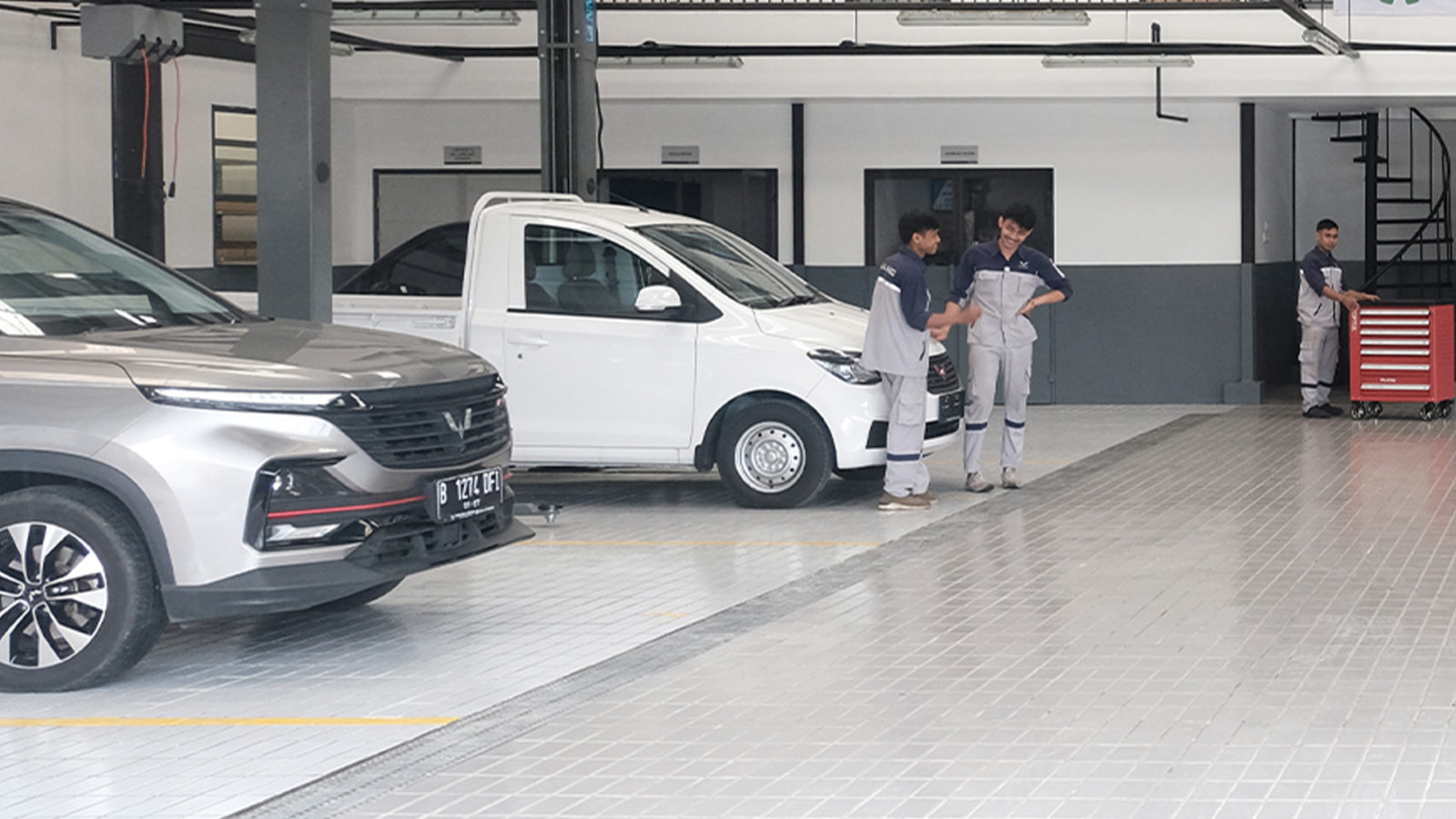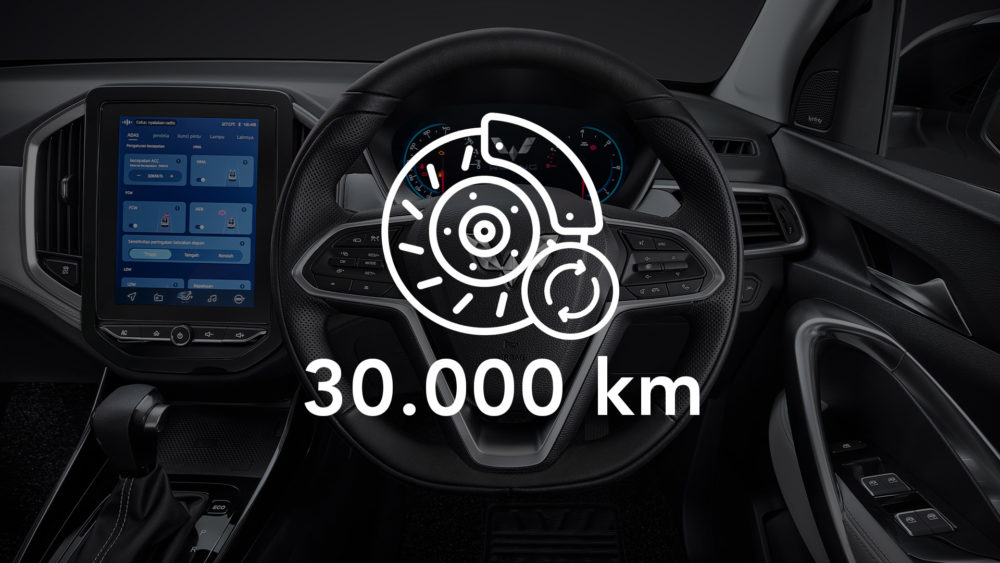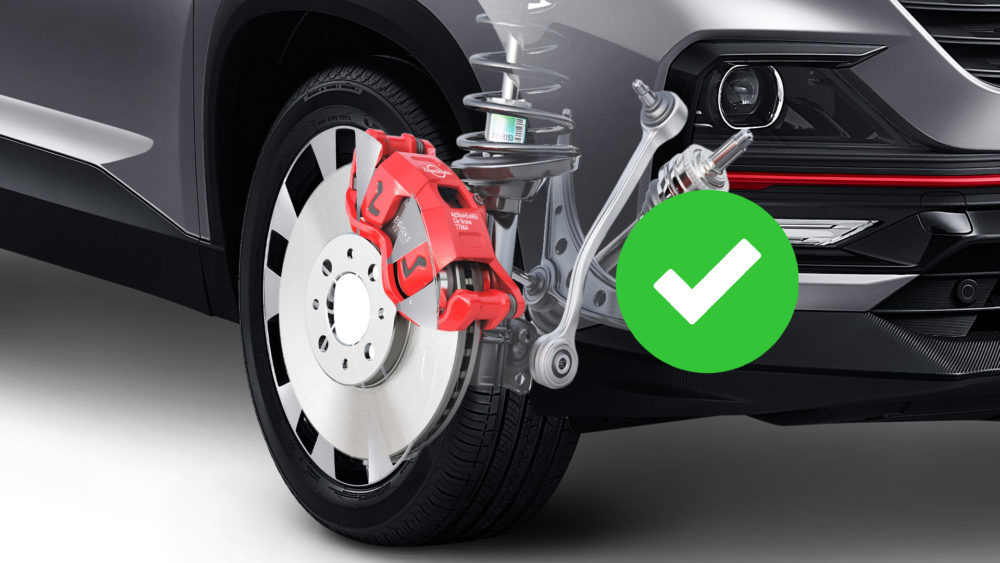When and How to Properly Service Your Car’s Brakes?
30 June, 2023

Many car owners often limit their service to just changing oil, oil filters, air filters, or performing engine-related tune-ups. However, there is another part of the car that should receive extra attention, particularly because it relates to driving safety. That part is the braking system.
Car brake service is an important routine activity to ensure driving safety. To learn more about this, read the article below regarding the appropriate timing for brake service, the cost of car service, and the proper procedure for servicing car brakes.
Car Brake Service and Its Importance
The brake system in a car consists of several components that play a crucial role in slowing down or stopping the vehicle while it’s moving on the road. Here are the 12 main components of the car’s disc brake system and their functions:
- Master Cylinder: This component generates the hydraulic pressure needed to move the brake piston.
- Brake Booster: It assists in increasing the hydraulic pressure generated by the master cylinder for more effective brake pedal operation.
- Brake Pedal: The pedal is pressed by the driver to send a signal to the master cylinder and trigger the hydraulic pressure.
- Brake Lines: These are the pipes that transmit the hydraulic pressure from the master cylinder to the brake calipers.
- Caliper: It is the component that presses the brake pads against the rotor to slow down or stop the wheel’s rotation.
- Piston: This is the part inside the caliper that pushes the brake pads against the rotor when hydraulic pressure is applied.
- Brake Pads: These are the pads that press against the rotor when hydraulic pressure is applied, thus slowing down or stopping the wheel’s rotation.
- Rotor: It is a metal disc mounted on the wheel and rotates along with the wheel. The brake pads press against the rotor to slow down or stop the wheel’s rotation.
- Wheel Studs: These are the bolts that hold the wheel to the hub.
- Hub: It is the part that holds the wheel on the wheel axle.
- Dust Shield: It is a protective shield that safeguards the braking system from dirt, dust, and gravel that can disrupt the performance of the components.
- Backing Plate: It is a metal plate that protects the braking system from dirt and gravel while also providing stability to the braking components.
From the above components, it can be said that disc brakes are commonly used in cars such as the Almaz RS Pro. This system utilizes additional components, namely disc rotors, which are clamped by two brake pads. This way, the disc brake system is capable of effectively slowing down the rotation of the wheels.
The Almaz RS Pro is equipped with front and rear brakes as important safety features. The front brakes are responsible for reducing the vehicle’s speed when necessary, while the rear brakes help balance the car. Therefore, regular maintenance of both braking systems is highly recommended.

When is the Right Time to Service Car Brakes?
The ideal interval for car servicing is a maximum of every 6 months of usage. Meanwhile, for brake pad service and inspection, as reported by Kompas, it is advisable to do it every 30,000 km to prevent brake failure and maintain the durability of the car’s braking system.
As for the replacement of brake oil, it is recommended to be done periodically to prevent brake malfunction or failure, which can be dangerous for both the driver and the passengers.
Cost of Car Brake Service
The cost of car brake service can vary depending on several factors, such as the brand and model of the car, the current condition of the brakes, and the location of the workshop. However, generally, the cost of car brake service includes the cost of spare parts (brake pads, brake discs, or drums), labor costs, and additional costs if there are other components that need to be replaced.
To get a more accurate cost estimate, it is advisable to contact the nearest workshop or mechanic for consultation and a price quotation.
How to Service Car Brakes and Components to Consider
Car brake service should be done regularly according to the recommendations of your car manufacturer. Here are some steps you can take to service your car’s brakes:
- Check brake pad wear: Visually inspect the condition of the brake pads. If the brake pads are thin or worn out, it is advisable to replace them. Thin brake pads can affect braking performance and reduce gripping power when the brake lever is pressed.
- Check the condition of the brake discs: Inspect the brake discs to ensure that there are no significant cracks, scratches, or deformations. If there is any damage, promptly replace the brake discs.
- Check the brake calipers: Inspect the brake calipers to ensure that there are no leaks and that the caliper piston functions properly. If there are leaks or issues with the calipers, it is advisable to repair or replace them with new ones.
- Replace the brake fluid: Over time, brake fluid can become contaminated with dirt and moisture, which can affect the performance of the braking system. Replace the brake fluid according to the manufacturer’s recommendations.
- Check the hydraulic system: Inspect the hydraulic hose, wheel cylinders, and master cylinder to ensure that there are no leaks or damage. If any problems are found, promptly repair or replace the damaged components.
- Perform brake testing: After servicing the brakes, perform a brake test to ensure the performance of the car’s brakes. This test is essential to determining if the brakes work well and are safe to use on the road.

Steps for Car Brake Service
Here are the steps you can follow when performing a car brake service:
- Ensure that the car is in a safe and flat location. Wear safety equipment, such as gloves and protective glasses, before starting the brake service.
- Remove the wheel of the car that will undergo brake service. Use a wheel wrench to slowly remove the wheel bolts. Make sure the car is properly supported with appropriate stands before removing the wheel.
- Once the wheel is removed, you can have a clearer view of the brake components. Check the condition of the brake pads, brake discs, calipers, and other components.
- If the brake pads are thin or worn out, remove the old ones and install new ones. Make sure to install the brake pads correctly according to the manufacturer’s instructions.
- Inspect the brake discs to ensure there is no significant damage. If the brake discs are worn out or damaged, replace them with new ones promptly.
- Check the condition of the brake calipers. If the calipers are leaking or experiencing damage, repair them or replace them with new ones.
- Perform brake fluid replacement if necessary. Be sure to use the type of brake fluid recommended by the car manufacturer.
- After inspecting and repairing if needed, re-install the wheel by tightening the wheel bolts securely.
- Repeat this process for each wheel that will undergo brake service.
Ensuring that the car’s braking system is in optimal condition is crucial for maintaining safety while driving. This also applies to owners of Almaz RS Pro cars equipped with front and rear brakes, which are important safety features. The front brakes are responsible for reducing the vehicle’s speed when needed, while the rear brakes play a role in balancing the car. Therefore, regular maintenance of both braking systems is highly recommended to keep the brake system in optimal condition.
If you experience issues with your car’s brakes, even if the oil is full, have your car inspected at the nearest and most trustworthy car brake service workshop. In addition to routine servicing, pay attention to signs and symptoms of problems in the braking system, such as squealing noises or vibrations when pressing the brake pedal. If your car experiences these symptoms, promptly have it checked at a workshop for further



